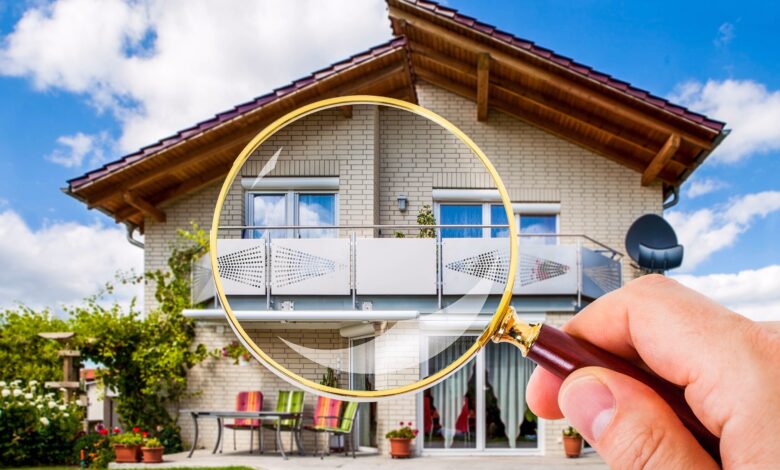
Hey there! If you’re a homeowner, real estate investor, or simply someone curious about the world of building assessments, you’ve come to the right place. Today, we’re going to dive into the intricate realm of legal obligations and best practices when it comes to evaluating the condition of a property. Buckle up, because this topic is as fascinating as it is crucial.
Introduction
Whether you’re buying a new home, renovating an existing one, or simply ensuring the safety of your current abode, building assessments play a pivotal role. These evaluations not only uncover potential issues but also provide valuable insights into the overall condition of a structure. However, navigating the landscape of legal requirements and industry best practices can be a daunting task, especially if you’re new to the game.
The Importance of Chicago Building Inspections
Let’s start with a real-world example. Imagine you’re a prospective homebuyer in the vibrant city of Chicago. You’ve found your dream home, and you’re eager to make it yours. But before you sign on the dotted line, you’ll need to ensure that the property meets all necessary legal requirements and adheres to industry best practices. This is where Chicago building inspections come into play.
Legal Obligations: The Bare Minimum
When it comes to legal obligations, there are certain standards and regulations that must be met. These requirements are put in place to ensure the safety and well-being of occupants, as well as to maintain the structural integrity of buildings. Failure to comply with these legal obligations can result in fines, penalties, or even legal action.
Building Codes and Zoning Regulations
One of the primary legal obligations in building assessments is compliance with local building codes and zoning regulations. These codes and regulations cover a wide range of topics, including structural stability, electrical and plumbing systems, fire safety, and accessibility. They are designed to protect both the occupants and the surrounding community.
Permit Requirements
Another critical legal obligation is obtaining the necessary permits for any construction, renovation, or alteration work. Depending on the scope of the project, you may need permits for activities such as demolition, electrical work, plumbing, or even simple repairs. Failing to secure the required permits can result in hefty fines and potential legal consequences.
Environmental Regulations
In addition to building codes and permit requirements, there are also environmental regulations that must be considered during building assessments. These regulations cover areas such as asbestos abatement, lead paint removal, and proper disposal of hazardous materials. Ignoring these regulations can have severe consequences for both human health and the environment.
Best Practices: Going Above and Beyond
While legal obligations set the bare minimum standards, best practices in building assessments go beyond mere compliance. These practices are designed to ensure the longevity, efficiency, and overall quality of a structure, ultimately enhancing its value and reducing long-term costs.
Comprehensive Inspections
One of the most crucial best practices in building assessments is conducting comprehensive inspections. These inspections should cover every aspect of the property, from the foundation to the roof, and everything in between. A thorough inspection can uncover potential issues that may not be immediately apparent, allowing for timely remediation and preventing more extensive (and expensive) problems down the line.
Energy Efficiency and Sustainability
In today’s environmentally conscious world, energy efficiency and sustainability are becoming increasingly important considerations in building assessments. Best practices in this area include evaluating insulation levels, examining heating and cooling systems, and assessing the overall energy performance of the structure. By implementing energy-efficient measures, homeowners can not only reduce their carbon footprint but also enjoy substantial cost savings over time.
Maintenance and Preventative Care
Another best practice in building assessments is the implementation of a comprehensive maintenance and preventative care plan. Regular maintenance can prolong the lifespan of various building components, such as roofing, siding, and mechanical systems. Additionally, preventative measures like waterproofing, pest control, and regular inspections can help mitigate potential issues before they escalate into costly repairs.
The Role of Professionals
While some homeowners may be tempted to conduct building assessments themselves, it’s often advisable to enlist the expertise of professionals. Certified home inspectors, structural engineers, and other industry experts have the knowledge, experience, and specialized equipment necessary to identify and address potential issues accurately.
Balancing Legal Obligations and Best Practices
Now, let’s explore the interplay between legal obligations and best practices in building assessments. While legal obligations set the minimum standards that must be met, best practices offer an opportunity to go above and beyond, ensuring the long-term integrity, efficiency, and value of a property.
The Cost-Benefit Analysis
Implementing best practices in building assessments often comes with an upfront cost. However, it’s essential to view these investments as long-term cost-saving measures. By identifying and addressing potential issues early on, homeowners can avoid more extensive (and expensive) repairs down the line. Additionally, energy-efficient and sustainable practices can result in substantial cost savings over time.
Striking the Right Balance
When it comes to balancing legal obligations and best practices, it’s crucial to find the right equilibrium. While adhering to legal requirements is non-negotiable, homeowners should also consider the unique circumstances of their property and their long-term goals. For example, if you plan to stay in your home for an extended period, investing in best practices may be more financially prudent than if you intend to sell in the near future.
The Role of Chicago Building Inspections
Let’s circle back to our earlier example of Chicago Building Inspections. In a city as diverse and dynamic as Chicago, building assessments play a critical role in ensuring the safety and integrity of residential and commercial properties. By adhering to both legal obligations and industry best practices, homeowners and businesses can protect their investments and contribute to the overall well-being of the community.
- Legal Obligations: The Bare Minimum
- Building Codes and Zoning Regulations
- Permit Requirements
- Environmental Regulations
- Best Practices: Going Above and Beyond
- Comprehensive Inspections
- Energy Efficiency and Sustainability
- Maintenance and Preventative Care
- The Role of Professionals
- Balancing Legal Obligations and Best Practices
- The Cost-Benefit Analysis
- Striking the Right Balance
- The Role of Chicago Building Inspections
Conclusion
As we’ve explored, navigating the landscape of legal obligations and best practices in building assessments can be a complex endeavor. However, by understanding the importance of compliance and the value of going above and beyond, homeowners and real estate professionals can make informed decisions that protect their investments and ensure the longevity and quality of their properties.
Remember, while legal obligations set the minimum standards, best practices offer an opportunity to enhance the overall value, efficiency, and sustainability of a structure. By striking the right balance between these two crucial elements, you can not only safeguard your investment but also contribute to the well-being of your community.
So, whether you’re a seasoned homeowner or embarking on your first real estate journey, embrace the importance of Chicago Building Inspections and strive to uphold both legal obligations and industry best practices. Your future self (and your wallet) will thank you.
Also, read this: Enhance Your Saint Louis Home Buying Experience with a Certified Home Inspector



